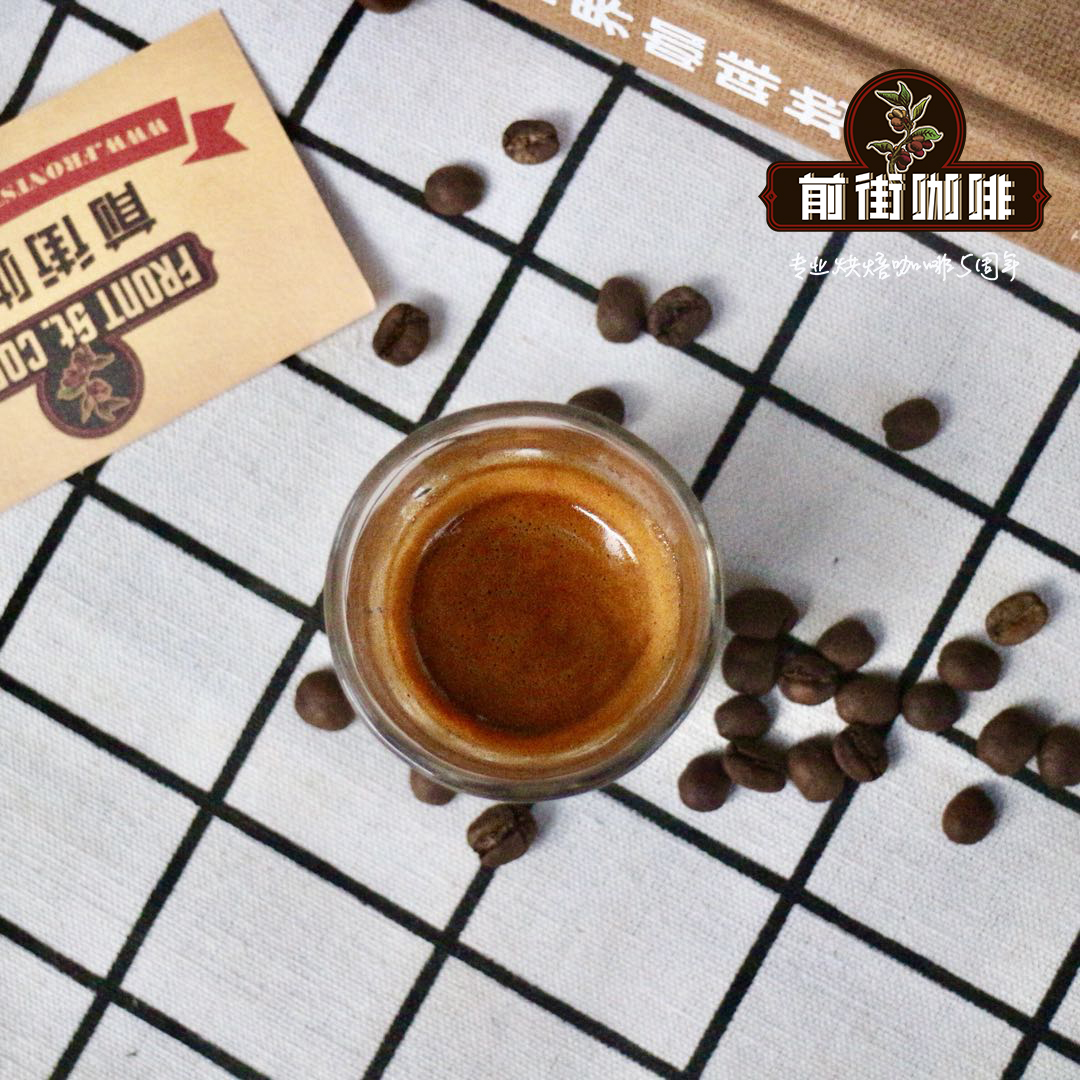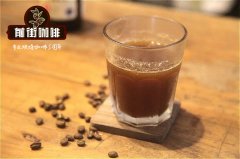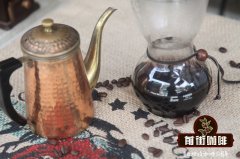Coffee Story of Alsi Mulan Flower Manor in Nicaragua the difference between Nicaraguan Manor Bean and producing area Bean

Professional coffee knowledge exchange more coffee bean information please follow the coffee workshop (Wechat official account cafe_style)
Nicaraguan Coffee-Alsmu Orchid Manor
The Orchid Manor is well maintained and harmoniously integrated with the local natural environment. The farm is 80% mountainous, and farmer Luo Erjie combined Kafe planting with his eco-tourism company in Matagale, planning a large enough area for camping and hiking, which was also the original idea. However, the fine caffeine grown here is also getting more and more attention. Alger came to Galagua in the early years to work on water conservancy projects. Like many people, he fell in love with Nicaragua 7 and settled here. He now runs an eco-tourism company in Matagalpa and lives with his wife on the tranquil hills of Alain Hues. At first, growing Kafe on these four hectares of land was one of his interests, and it was not until this year that Kafe began to have a good harvest. Fortunately, when we measured this caffeine, we were deeply attracted by its excellent taste.
Nicaraguan coffee is mainly produced in the central and northern regions, of which the coffee beans produced in Jinotega are the products of natural agricultural methods at an altitude of 1200 meters, characterized by shade planting, while coffee beans are washed and dried in the sun.
Generally speaking, Nicaraguan coffee is less distinctive, so Nicaraguan beans are often used as mixed coffee or instant coffee. However, high-quality Nicaraguan beans, such as Maragogipe, are highly rated. Its coffee beans are very large, like beans, because the taste is more balanced, unlike the distinct acidity of other Central American coffee, with a clear taste and excellent aroma. This round and soft texture also makes it a unique show in Guatemalan coffee beans, loved by many people.
The orchid Nicaraguan top manor beans are coffee beans from a single manor in the Genotega district of Nicaragua at an altitude of 1200 meters above sea level, shaded by natural farming methods and planted with microbial probiotics to develop their own special treatment, which is the highest SHG (Strictly High Grown) grade alpine hard beans among 100% Arabica beans.
What's the difference between 'manor beans' and 'producing area beans'? The "E" small farmers in Hualien recently did a little research, such as Hualien, and helped me make up for it this time. Here are the experiences that Ruyi finally digested. Sigh again, there is no limit to learning-for example, the more you know, the more you feel ignorant about coffee.
Regional beans are the product of a grading system in major coffee producing areas, where coffee farmers hand over beans to local coffee exchanges, which are usually run by the government. When they receive coffee beans, they will first mix them, and then grade and sell them according to their appearance and size, so they are also called "producing area graded beans".
On the other hand, 'manor beans' are coffee beans produced by a single coffee farm or by a cooperative made up of several coffee farmers (a bit like a production and marketing class in Taiwan).
The characteristic of 'Manor beans' is that the quality of coffee beans can be maintained at a better level. Moreover, the coffee beans of different manors show their unique flavor because of the different climatic conditions, soil environment, planting methods and raw bean treatment procedures. The most important thing is that we can trace the information history of the producers, and we can know which manor or cooperative we are drinking this cup of coffee from. We can also know the variety of coffee, the geographical environment of planting, and the way it is handled. Wait. And because each batch of coffee grows in the same environment and treated in the same way, the flavor and quality of garden-grade coffee is the same as that of ordinary coffee beans, but the biggest problem is that it does not produce much and may not be available all the year round.
"E" small farmers also taught me another lesson about what is meant by natural farming and how it is different from the so-called organic and non-toxic planting.
Organic agriculture has been ramming up in China recently. Most people think that buying agricultural products with a 'organic certification' label will mean OK. In fact, this is not necessarily the case. Organic farming uses both fertilizers and pesticides, but it also requires organically certified fertilizers and pesticides, and most certified organic fertilizers actually add a certain percentage of mixed fertilizers. In addition, because whether "organic" is the result theory, certification organizations cannot keep an eye on farmers at any time, so they can only adopt testing methods. We all know that pesticides have an effective period, and as long as there are no pesticide residues in the test results, they can be considered safe. I believe we all understand whether it is really organic, but it depends on the conscience of farmers and the carefulness of consumers.
According to the understanding of "E" small farmers, most organic farmers in Taiwan hope to sell their agricultural products at a better price under the banner of "organic." instead of having a thorough understanding of the threat to consumers' health caused by the damage to the ecological environment caused by traditional habitual farming methods, even if they choose organic farming methods, once they find organic high costs and low harvests, they often immediately return to traditional agricultural laws.
Non-toxic agricultural methods generally only emphasize the use of pesticides, but do not exclude chemical fertilizers, so the harm to the soil and the environment is inevitable.
Therefore, the natural farming method adopted by the top orchid Nicaraguan manor beans combined with microbial probiotic cultivation is the natural agricultural method most respected by "E". The so-called natural farming method is to cultivate crops in a way that does not use market fertilizers or pesticides and tries to cultivate crops in a way that organisms are mutually exclusive.
END
Important Notice :
前街咖啡 FrontStreet Coffee has moved to new addredd:
FrontStreet Coffee Address: 315,Donghua East Road,GuangZhou
Tel:020 38364473
- Prev

Advice on tanning Angel Coffee at Maria Manor in Nicaragua _ introduction to Maria Manor
Professional coffee knowledge exchange more coffee bean information please follow the coffee workshop (Wechat official account cafe_style) Nicaraguan Coffee-Maria Manor Black Angel Coffee beans introduction Nicaragua Las Marias applicable: single product / single product concentrated refined method: sun products: Kaddura, bourbon altitude: 1300 meters flavor: floral, apricot, melon roaster tips let
- Next

Is it good to wash Kaddura coffee in Francisco, Nicaragua? Nicaraguan coffee hand brewing suggestion
For more information on coffee beans, please follow the Coffee Workshop (official Wechat account cafe_style). Storm Manor (Finca La Tormenta), which won the fifth place in the 2011 COE excellent Cup Competition, is managed by Mr. Francesco. In Storm Manor, in addition to different coffee varieties can be found, it is also a self-contained natural ecosystem.
Related
- Detailed explanation of Jadeite planting Land in Panamanian Jadeite Manor introduction to the grading system of Jadeite competitive bidding, Red bid, Green bid and Rose Summer
- Story of Coffee planting in Brenka region of Costa Rica Stonehenge Manor anaerobic heavy honey treatment of flavor mouth
- What's on the barrel of Blue Mountain Coffee beans?
- Can American coffee also pull flowers? How to use hot American style to pull out a good-looking pattern?
- Can you make a cold extract with coffee beans? What is the right proportion for cold-extracted coffee formula?
- Indonesian PWN Gold Mandrine Coffee Origin Features Flavor How to Chong? Mandolin coffee is American.
- A brief introduction to the flavor characteristics of Brazilian yellow bourbon coffee beans
- What is the effect of different water quality on the flavor of cold-extracted coffee? What kind of water is best for brewing coffee?
- Why do you think of Rose Summer whenever you mention Panamanian coffee?
- Introduction to the characteristics of authentic blue mountain coffee bean producing areas? What is the CIB Coffee Authority in Jamaica?

